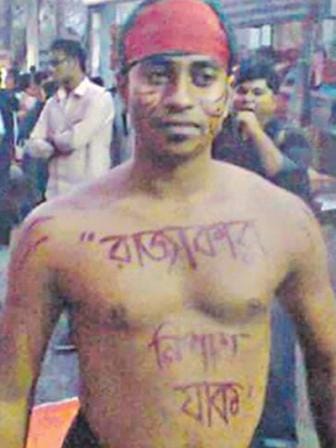Nazim killing prompts US to consider refuge for bloggers

Assailants hacked and shot to death 28-year-old law student Nazimuddin Samad on Wednesday night on a street in Bangladesh's capital, Dhaka. The unidentified attackers shouted "Allahu Akbar," or "Allah is great," and escaped by motorcycle.
At least five secular bloggers and publishers were killed in similar attacks last year. That has heightened concern that religious extremists are getting a foothold in Bangladesh, a Muslim country with traditions of secularism and tolerance, and that authorities are failing to provide protection.
READ MORE: Their worst fear comes true
In December, US-based human rights groups urged the US to offer "humanitarian parole" for Bangladeshi writers targeted by extremists for their secular beliefs. Karin Deutsch Karlekar of PEN America reiterated that call to the US and other countries Thursday, saying that Samad's killing "is a cruel illustration of the costs of inaction."
State Department spokesman Mark Toner strongly condemned the "barbaric murder" of Samad and told reporters the US offers "unwavering support to the Bangladeshi people in their struggle against violent extremism."
He said that humanitarian parole for a select number of bloggers who continue to be under "imminent danger" is one option under consideration, but referred questions on it to the Homeland Security Department.
Shin Inouye, press secretary at the US Citizenship and Immigration Services, which is responsible for administering such cases, declined to comment about any specific requests for humanitarian parole, citing privacy rules.
Humanitarian parole is used sparingly to bring a person into the United States for a temporary period of time due to a compelling emergency.
No group has claimed responsibility for the killing of Samad, a supporter of Prime Minister Sheikh Hasina's secular Awami League party.
Bangladeshi police said they suspect Samad was targeted for his outspoken atheism and for supporting capital punishment for war crimes committed during the independence war against Pakistan in 1971. Hasina's government set up special tribunals to try war crimes cases, including against senior leaders of an opposition, Islamist party.
Hasina's government has accused the opposition of supporting religious radicals it blames for the attacks on bloggers, minority Shiites, Christians and foreigners. Some of the attacks were claimed by the Islamic State group, but the government dismisses those claims and says the Sunni extremist group has no presence in the country.



 For all latest news, follow The Daily Star's Google News channel.
For all latest news, follow The Daily Star's Google News channel.
Comments